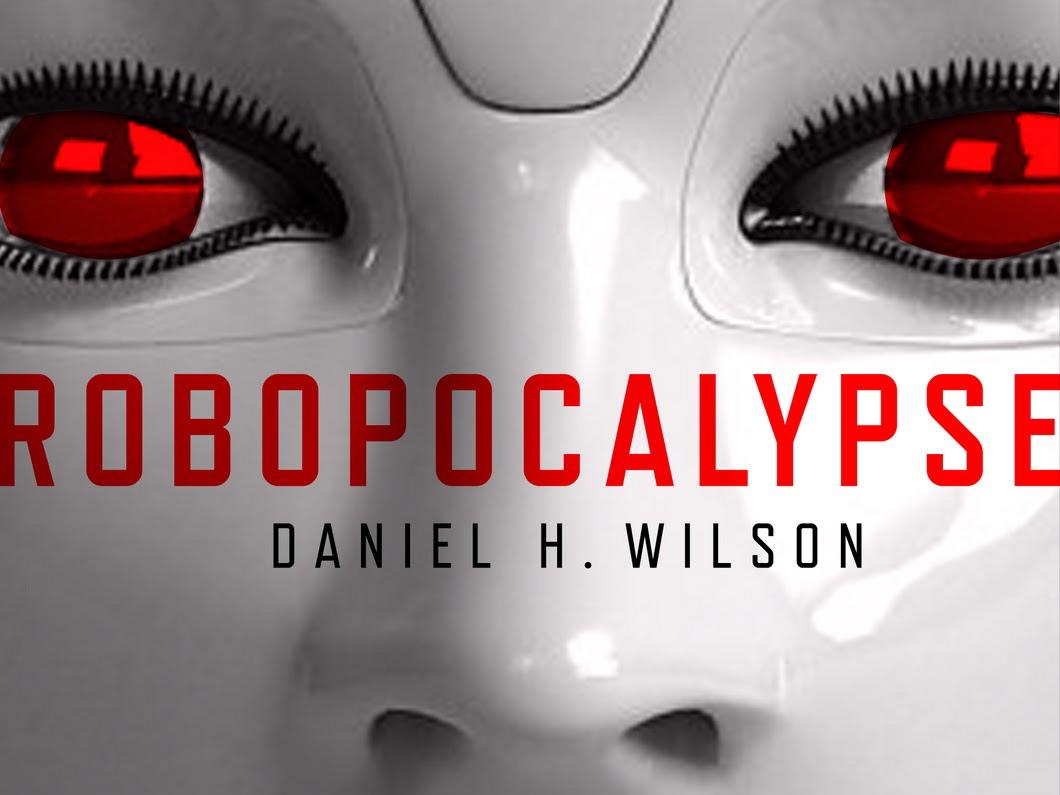Robopocalypse: a summer thriller on robots
Image of the cover of the book Robopocalypse
This story was originally covered by PRI’s The Takeaway. For more, listen to the audio above.
The author of the book “Robopocalypse” is unlike most science fiction writers in that his first career was as a roboticist; to put it another way, Daniel Wilson’s first job was creating what many would think of as science fiction. His book takes place in the near future, and through a storytelling method based on the idea of oral history, the reader is told about conflict between machines and the human race, and soon, both entities struggle for survival.
Wilson explains how his job experience affected his writing:
I spent a lot of time building robots and learning about them and it’s hard, you know, and at the end of it, I think you end up with a real respect for robots. And I wouldn’t write any robots that are completely dependent on human kind either way — like that they either want to wipe us out, or they want to become us.
The book portrays the relationship between people and robots in locations including Japan, Afghanistan, United Kindom and the US. The Takeaway’s Celeste Headlee points out that the people of the Native American Osage tribe seem to be best equipped to respond to the robots. Wilson explains that this has to do with his childhood:
I grew up in Oklahoma in the Cherokee the Nation, and I’m part Cherokee, and I’ve always lived in a place where there’s a sovereign government that coexists on top of the United States government. So it’s really interesting to me, and I’ve always thought that, you know, if everything hits the fan someday, there are these small governments that are fully functional, and they have their own jails and hospitals and school and police, and they would keep going. Even if the larger government failed, there’s lots of smaller sovereign governments.
Readers can look forward to the book being translated into a Steven Spielberg picture, expected to come out in 2013. Wilson tells why his book is being made into a movie so soon after publication:
I didn’t intentionally send it out to LA or Hollywood or any of the studios. I was trying to get it published, and then some of the pages got leaked, and so they called me. And so I think that maybe that it’s just my writing style — it’s kind of visual — and so that’s the reason that it was so easy for them to see it as a movie.
————————————————————–
“The Takeaway” is a national morning news program, delivering the news and analysis you need to catch up, start your day, and prepare for what’s ahead. The show is a co-production of WNYC and PRI, in editorial collaboration with the BBC, The New York Times Radio, and WGBH.
